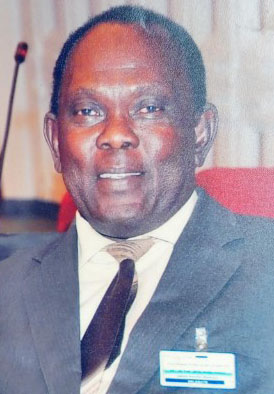By James Aniceto Batikayo
It is encouraging to know of the intention of the government to organize at last a conference on the Federal System of Rule that has ever been demanded by people in South Sudan since the colonial era.
The conference is scheduled for the end of this year, 2024, but that seems now untenable. This conference should have been held a long while ago since the enactment of the Transitional National Constitution in 2011 or at least in the months and years following the Revitalized Agreement on Resolution of Conflict in South Sudan (R-ARCSS) in the year 2018.
Paragraph five of the Preamble of the agreement, the R-ACRSS, emphasizes federalism as a popular demand. That could have accelerated the writing of the permanent constitution of our country.
In Sudan, under President Jaafar Numeiri, when federalism was first established in the country and we (the people of South Sudan) were part of that country, a Constitutional Draft Committee (CDC) had been formed by the president under the chairmanship of lawyer Mr. Abel Allier (a Southern Sudanese) who was then the vice president of the Republic of Sudan.
There was no commission for civic education by then like we have it today in South Sudan. It did not take Mr. Abel and his team long to have the draft constitution written and presented to a National Constitution Conference to debate and resolve on before it was passed to parliament as the Constituent Assembly to be enacted and promulgated.
The CDC proposed then 6 regions, including the Self-Rule Southern Region, in its report of the Sudan federal system to the Constitutional Conference, but the people of Western Sudan objected to the region delineated for them. They wanted that region split into two respective regions, known as the Darfur Region and the Kordufan Region, as they stand today. By and large, the demand of the Westerners was accepted, premised on the justifications they had given.
Parliament, as the Constituent Assembly, unanimously passed that draft constitution without much ado when it received the report from the Conference.
We have to always learn from experience.
There is no need in our case of the permanent constitution-making, taking a long time, sending people to the states under the claim of civic education, and soliciting opinions, even from the illiterates, as the National Constitution Review Commission (NCRC) has been doing since 2012.
It is more plausible and less expensive to bring well-versed people from the states instead of administrative areas to the capital, Juba. What should now happen immediately is that a CDC be constituted to prepare the draft constitution while the preparation for the conference is underway. Once the conference is convened and the draft constitution is at hand, parliament should be called to enact it, and the country goes then to elections.
The federal system of governance is currently practiced in 24 countries of the world. To be more specific, federalism is the system of rule in the following countries: 1. Ethiopia 2. Argentina 3. Spain 4. Australia 5.
ermany 6. United Arab Emirates 7. Pakistan 8. Brazil 9. Bosnia and Herzegovina 10. Camorras Island 11. South Africa 12. Russia 13. St. Kitts-Nevis 14. Swaziland 15. Serbia and Montenegro 16. Venezuela 17. Canada 18.
Malaysia 19. Mexico 20. Mongolia 21. Australia 22. Nigeria 23. India 24. United States of America. (This information is extracted from the Magazine of the Union of Federalism, special edition 2005 Vol. 5 p. 20.) These countries constitute 40% of the world population.
South Sudan, Sudan, Iraq, and Somalia are considered in transition to full federal status in the time to come. Each and every federal state has its own policy and politics different from another, despite the common federal administrative structure, which may be presidential like in Nigeria or parliamentary like in Ethiopia.
At present, and since independence, South Sudan has that same federal structure of the union government level at the nation center, the state level, and the local government level but within a presidential system.
Unfortunately, this structure is devoid of more effective federal functions of allocation of powers and resources to the various levels and echelons of government, starting from the grassroots to the apex.
What we have is a decentralized system of government whereby there is a devolution of powers from the central government to the states as deemed fit by the center. Likewise, there is no release of appropriate funds along with those devolved powers. Most powers and funding are controlled by the center.
In view of the current security situation across the country, the policy and politics of federalism may differ from what they are in other parts of the world. We may have federal regions as well as federal states thereunder. For example, Equatoria states and Western Bahr Ghazal state may be combined as one region known as the Equatoria Region. Upper Nile States may be a region or two by itself bearing the names Upper Nile Region (North) and Upper Nile Region (South).
Bahr Ghazal Region may then encompass the rest of the remaining states. This is similar to the Darfur Region today, which is engulfing all Darfur States that have become subservient to it. The regions come under the Union or Central Government, and the states fall in the structure under the regions. By and large, the Civil Service, the Army, the Police, the National Intelligence, the Civil Defense, and the Wild Life forces must be central institutions, respectively, and exist independently in all the regions.
Citizens must individually serve in every state they want, not specifically in their mother states, as is the case now. A state governor or minister must not also serve, by law, in the same state of his or her birth only but in other states as well, depending on his competence. This is practiced in India. Our nation’s historic leader and hero, the late Dr. John Garang De Mabior, did the same when he appointed governors of the ten states in South Sudan after the Comprehensive Peace Agreement (CPA) in 2005, each to a state that is not his original state. Most attractive in some federal systems is that the states and regions support the union government and not vice versa, as is happening now in South Sudan.
There must be a full-fledged agreement on the powers assigned to the regions, the states, and the local governments, as well as the financial resources to accompany those powers, such as in the VAT financial system.
South Sudan has many experts who could draw for us, the citizens, a very distinguished system of federalism that all of us are yearning for since prior to independence.
So far, all the peace conferences held abroad, for security and serenity, have not focused abundantly on federalism, which could be our national panacea for stability and prosperity. God bless.




